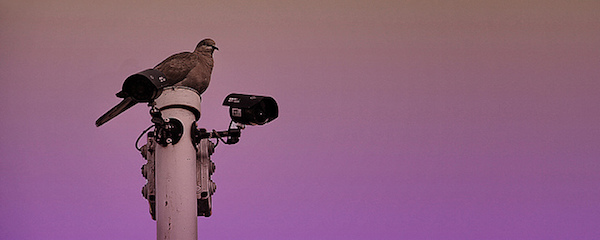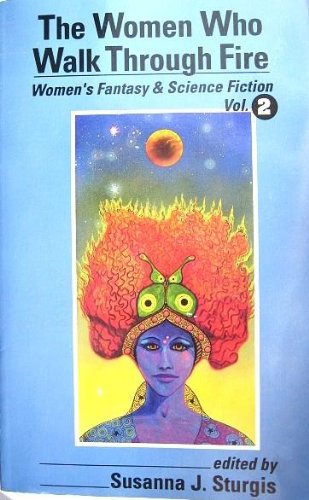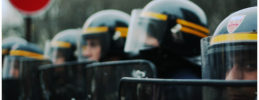
('go ahead, act natural' © EnriqueMendez, 2010)
*
DOORS OF PERCEPTION:
CONSIDERING THE SPECULATIVE FUTURE
by MARY O’DONNELL
*
“There are things known, and there are things unknown, and in between are the doors of perception.”
~ Aldous Huxley
Some writers who depict the future describe their work as ‘speculative fiction’, or as Margaret Atwood calls it, ‘social science fiction’. As a girl I enjoyed science fiction. It was almost always dystopian by nature, and grotesque creatures frequently overwhelmed hapless humans who had found themselves somehow trapped in the wrong dimension. Furthermore, plants had fully cognitive function as well as muscular connective tissue, and giant spiders were likely to invade bodies. Female bodies in the main. It was horrific stuff, often penned by male writers. In retrospect, this poor model of science fiction represented displaced and warped relief for men who by nature disliked women and I outgrew it, as many do.
Yet the tradition of speculating is by no means new, and includes historic examples such as Jules Verne’s Twenty Thousand Leagues under the Sea, writing from Alexandre Dumas, Sir Arthur Conan Doyle and others. It encompasses the gothic, as well as horror and fantasy. Today, the vanguard is arguably led by L. Timmel Duchamp and her compelling short story ‘The Forbidden Words of Margaret A.’, Nnedi Okorafor’s ‘The Palm Tree Bandit’, or Hiromi Goto’s challenging ‘Tales from the Breast’. Margaret Atwood’s vision in her novels The Handmaid’s Tale and Oryx and Crake further demonstrates that the need to suggest alternative future outcomes continues to inspire some writers.
Why the future, one may ask? After all, we have plenty of the past to work with, coloured by memory, as well as studied history (which we know to be not entirely trustworthy), and we also live in a present which is always a resource for short story writers. But the future? Sometimes I sense that to move beyond the present isn’t quite kosher, because some readers are too intellectually snobbish about the idea of speculating too far ahead. So the term ‘science fiction’ remains a little degraded in popular perception, even among writers, like an outlying flange in the ‘real’ enterprise of literature. But ambiguity and uncertainty lies at the heart of  all good short story writing. Moving things forward, whether one’s view of time is linear or not, does not change the best uncertainties, but builds on the human condition as it strives for balance within temporal and even spatial fragmentation. (The time hasn’t yet arrived in which we can say ‘Beam me up Scottie’, but it will, it will…)
all good short story writing. Moving things forward, whether one’s view of time is linear or not, does not change the best uncertainties, but builds on the human condition as it strives for balance within temporal and even spatial fragmentation. (The time hasn’t yet arrived in which we can say ‘Beam me up Scottie’, but it will, it will…)
Writing short stories set in the future carries the exact same responsibility as writing short stories set in the present or past. The only difference is that one must convince the prospective reader that the world into which they’ve been invited has some relevance and possibility for them, that it catches a trigger-point of their imagination and allows them to consider such scenarios in all seriousness. The credibility gap, as ever, has to be accounted for.
Having nourished myself on novels like Brave New World or 1984, it was only a matter of time before I wrote into the future myself. The German-Bulgarian writer Elias Canetti inspired me further when it came to imagining futures. His play Die Befristeten confronts the idea of death as the final taboo, and influenced an early short story of mine called ‘The Deathday Party’ (in which individuals are invited to die after having celebrated their lives at an enormous communal party).
I have written several pieces set in the future, and find it impossible not to speculate. The world is full of ‘news’, but very little of it seems essential to me because I am powerless to help out in a tsunami or in the latest famine. So there’s a difference between the ‘essential’ and the ‘necessary’. The necessary is what outside media forces tell people they ought to know, but as a writer, the ‘essential’ speaks to me on a deeper level, driving me to nudge my perceptions so that in fiction, I can raise the question of what outcomes might unravel, and how the world might be changed for better or worse. For example, how will humans of the future, so geographically crammed, handle the accompanying isolation?
Today’s pressing questions are surely environmental and ecological, with a sub-category of violence and what that implies for the species. One could almost forget that society constantly attempts to protect itself from deviancy on levels that range from the creation of unbreakable wrappings and safety tabs on food and drink, to the many cameras which track us in lifts and public bathrooms, at football stadiums, and on trains and buses.
We can guess, as Mary Doria Russell did when writing Children of God, that in the far future, human fertility will indeed diminish, and in the nearer future, everybody in the southern hemisphere with the exception of Australians, will want to migrate to the northern hemisphere, on grounds of survival. And writers are addressing such themes, bravely and imaginatively.
But as for the unknown things, the speculative outcomes? That, surely, is something which writers can explore. The thing to remember is this: birth, love, death and landscape will endure no matter what planetary scenarios are ahead. It’s how we reimagine these themes in time and period that counts to further push the boundaries of the short story.
~
 Mary O’Donnell lives in Co Kildare, Ireland and has published sixteen books (poetry, short stories and novels), including her recently re-published 1992 debut novel, The Light Makers (451 Editions). Her two short story collections are Strong Pagans and Storm Over Belfast, the latter long-listed for the Frank O’Connor International Short Story Award some years ago. She won the Fish Short Story Competition in 2011, has received the Jameson Short Story Award, and was runner-up in the VS Pritchett Short Story Prize in 2000. Many stories have been broadcast on Ireland’s national radio station RTE, and she has adapted two as radio dramas, also broadcast. A collection of linked short stories, Empire, set between 1915 and 1919 in Ireland and Burma, will be published by Arlen House in November 2017. A volume of essays, Giving Shape to the Moment: the Art of Mary O’Donnell, Poet, Short Story Writer, Novelist, is forthcoming in 2018. www.maryodonnell.com
Mary O’Donnell lives in Co Kildare, Ireland and has published sixteen books (poetry, short stories and novels), including her recently re-published 1992 debut novel, The Light Makers (451 Editions). Her two short story collections are Strong Pagans and Storm Over Belfast, the latter long-listed for the Frank O’Connor International Short Story Award some years ago. She won the Fish Short Story Competition in 2011, has received the Jameson Short Story Award, and was runner-up in the VS Pritchett Short Story Prize in 2000. Many stories have been broadcast on Ireland’s national radio station RTE, and she has adapted two as radio dramas, also broadcast. A collection of linked short stories, Empire, set between 1915 and 1919 in Ireland and Burma, will be published by Arlen House in November 2017. A volume of essays, Giving Shape to the Moment: the Art of Mary O’Donnell, Poet, Short Story Writer, Novelist, is forthcoming in 2018. www.maryodonnell.com

